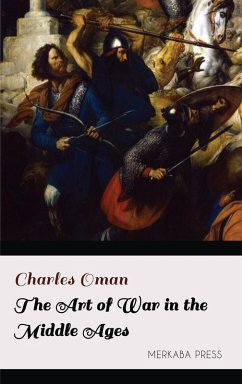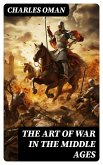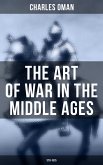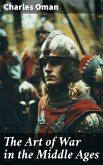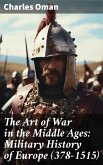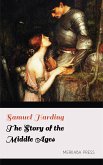BETWEEN the middle of the third and the middle of the fifth century lies a period of transition in military history, an epoch of transformations as strange and as complete as those contemporary changes which turned into a new channel the course of political history and of civilisation in Europe. In war, as in all else, the institutions of the ancient world are seen to pass away, and a new order of things develops itself.
The most characteristic symptom of the tendencies of this period is the gradual disappearance of the Roman legion, that time-honoured organisation whose name is so intimately bound up with the story of Roman greatness. In A.D. 250 it was still the heavy-armed infantry of the empire which formed the core of battle, and was the hope and stay of the general. By A.D. 450 the cavalry was all in all, the foot-soldiery had fallen into disrepute, and the very name of legion was almost forgotten. It represented a form of military efficiency which had now completely vanished. That wonderful combination of strength and flexibility, so solid and yet so agile and easy to handle, had ceased to correspond to the needs of the time. The day of the sword and pilum had given place to that of the lance and bow. The typical Roman soldier was no longer the iron legionary, who, with shield fitted close to his left shoulder and sword-hilt sunk low, cut his way through the thickest hedge of pikes, turned back the onset of the mailed horsemen of the East, and stood unmoved before the wildest rush of Celt or German. The old military organisation of Augustus and Trajan began to fall to pieces in the third century; in the fourth it was so weakened and transformed as to be hardly recognisable; by the end of the fifth it had disappeared.
The most characteristic symptom of the tendencies of this period is the gradual disappearance of the Roman legion, that time-honoured organisation whose name is so intimately bound up with the story of Roman greatness. In A.D. 250 it was still the heavy-armed infantry of the empire which formed the core of battle, and was the hope and stay of the general. By A.D. 450 the cavalry was all in all, the foot-soldiery had fallen into disrepute, and the very name of legion was almost forgotten. It represented a form of military efficiency which had now completely vanished. That wonderful combination of strength and flexibility, so solid and yet so agile and easy to handle, had ceased to correspond to the needs of the time. The day of the sword and pilum had given place to that of the lance and bow. The typical Roman soldier was no longer the iron legionary, who, with shield fitted close to his left shoulder and sword-hilt sunk low, cut his way through the thickest hedge of pikes, turned back the onset of the mailed horsemen of the East, and stood unmoved before the wildest rush of Celt or German. The old military organisation of Augustus and Trajan began to fall to pieces in the third century; in the fourth it was so weakened and transformed as to be hardly recognisable; by the end of the fifth it had disappeared.
